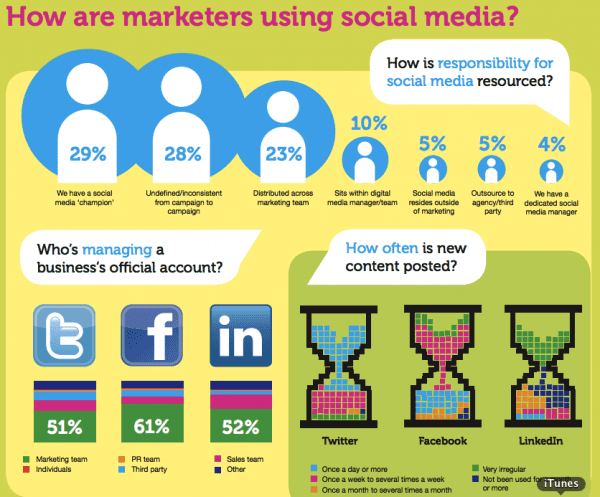In today’s market, many businesses are ready to jump on the social
media wagon without asking questions. “Social media” has become this century’s
“guerrilla marketing”: the words occupy a line on a communications plan without
many people being informed on what exactly that entails. The buzz around the
words have created a sense of comfort in strategy. “If we have social media,
they will come,” seems to be the new age motto.
 |
| Essential Ingredients of A Social Media Plan on Smartinsights.com |
But what is it that they are coming to? Before a company
sets out to play the social media game, the need must be there. A simple scan
of “how to write a social media plan” articles online will uncover
the number one need: is it in your mission? As a company, must you communicate with your
customers online using social media platforms? Will there be someone there to
listen? To communicate back?
Not all companies need to be on social media platforms,
especially if the customers are not there. For many, new platforms such as
Facebook simply add on to the already strong presence on the web. For some, it
is the only footprint they have on the web. Both sets of companies can
successfully profit from customer relationships if they are fulfilling their missions
as set up in their business planning. Social media should be thought of as a
delivery tool for the true business plan.
I am not talking myself out of a social media writing
career, but simply reassuring those that do not see a fit between their organization
and social platforms. I am reminded of
some organizations I have worked with in the past, who were insistent on having
an online presence. One was an organization was a domestic violence support
group that particularly wanted its members to be kept anonymous, and were
prevented from discussing in detail their meeting times or advice. At the time,
Facebook only had groups, which meant that any member of the group was
mentioned in the followers were linked to the organization. Most of the members
also had trouble accessing the internet, which made organizers weary of them
when they went incommunicado. Clearly,
it was not within their line of mission to create an open Facebook group
listing events and meetings. The solution proposed was to keep news posts and
events calendars on the group’s website, for the purpose of community outreach
and donors. Communications with members was to be kept private.
For others, being kept out of the social media loop is marketing
suicide. With any communication plan, businesses must keep in mind some primary
objectives. When trying to determine your role in the social media game, the
questions that need to be asked first include:
- What is our objective in communicating with our constituents?
- How can we reach them?
- Do we have the staff resources to maintain profiles and current content?
- After evaluation, did we reach the people we wanted to reach?
Maintaining this questioning and adjusting accordingly,
whether you use social media or not, will create a successful communications
plan.

No comments:
Post a Comment